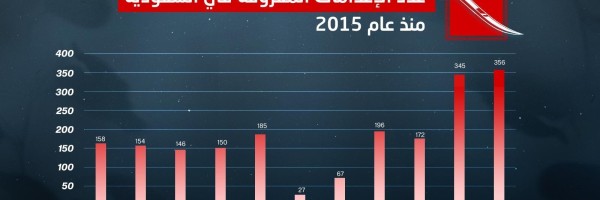On 7 April 2022, a Turkish court issued a ruling to suspend the trial of 26 people accused over the killing of Saudi journalist Jamal Khashoggi and transfer the case to Saudi Arabia. ALQST sees the move as a slap in the face for justice, making it likely once again that the guilty will go unpunished. Back in 2018, ALQST called for an international investigation into the murder, an appeal subsequently taken up by several major human rights organisations.
Jamal Khashoggi (1959-2018) had been lured on 2 October 2018 to the Saudi consulate in Istanbul, where he was killed by a Saudi security team and his body reportedly dismembered; the whereabouts of his remains have still not been disclosed. ALQST has called for the man ultimately responsible for the murder, the one who gave the orders for it, to be publicly identified and held accountable.
ALQST’s Executive Director, Nabhan AlHanshi, comments: “What has happened today is a huge disappointment, and a slap in the face for justice. Letting the real perpetrator go unpunished for a horrific crime like this, which took place in full view of the whole world, will surely encourage further heinous crimes to be committed, and sends a message to anyone believing in justice and human rights that it is interests that matter, not justice.”
The first session of the trial in the Turkish court took place on 3 July 2020, after the Turkish prosecutor filed charges in March that year against 20 Saudi officials linked to the crime. Eight witnesses gave evidence, and a second charge sheet was filed against six more officials in September.
The Saudi authorities at first denied killing Jamal Khashoggi and obstructed all attempts at investigation, but then did a U-turn and held a politicised investigation and trial of their own, blaming the crime on what they called a “rogue operation”. Eleven unnamed individuals were found guilty in a trial that was widely criticised for its lack of transparency and failure to determine the involvement of senior officials in the case.
On 7 September 2020 the Criminal Court in Riyadh commuted the death sentences of five of the eleven to lengthy prison sentences, imposed prison sentences on three others – again not named – and declared the case finally closed.
The UN Special Rapporteur on extrajudicial, summary or arbitrary executions, Agnès Callamard, found “credible evidence” of the involvement of Crown Prince Mohammed bin Salman and other senior Saudi officials in the murder, but the Saudi court made no determination on the crown prince’s responsibility, and found the senior officials not guilty.




